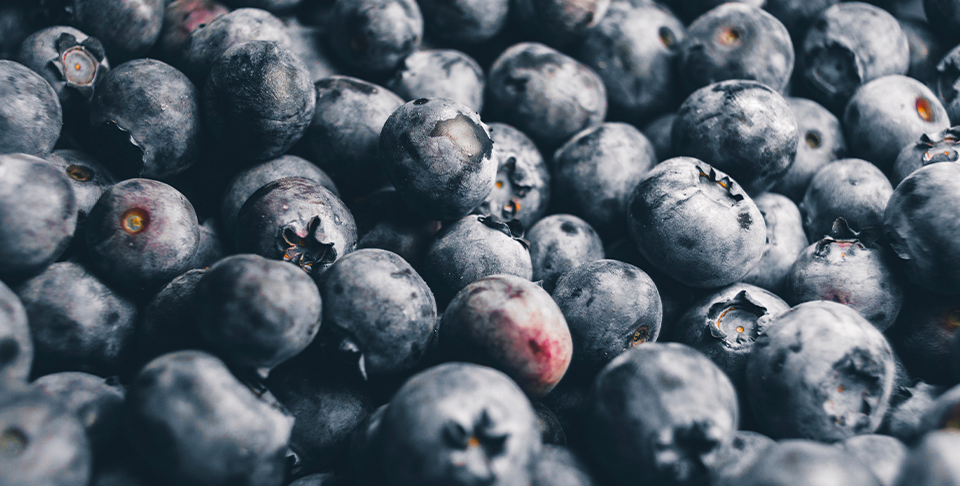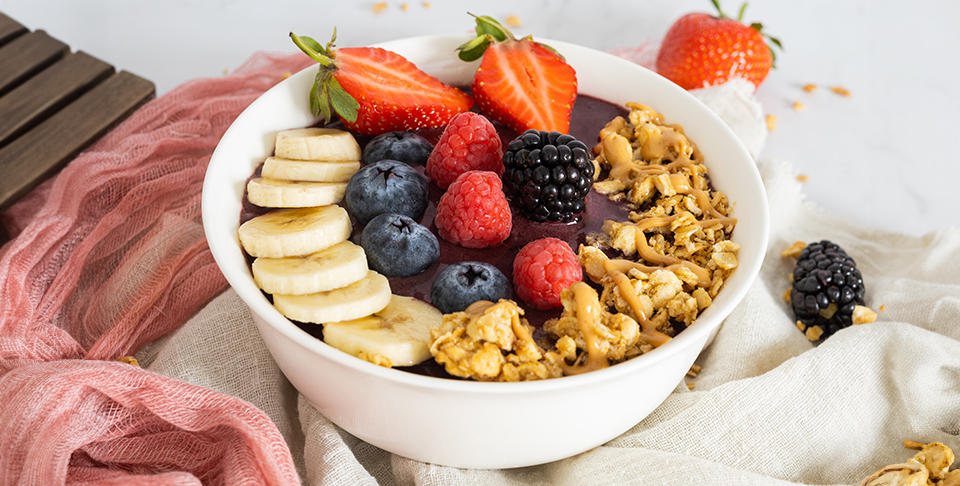Free Shipping - 48hrs Only | Use Code: FREESHIP
Ends 26/04 11:59PM AEST Min spend $79
Quick Acai Summary Points
- Acai, also known as assai, is a superfood berry gaining popularity in health circles.
- It's packed with nutrients that promote health, including antioxidants and components reducing LDL cholesterol.
- Acai berries contain unique, previously undiscovered nutrients beneficial for overall health.
- The acai palm, native to Central and South America, produces these berries.
- Acai's nutrient profile includes monounsaturated and omega-6 fats, fibre, protein, and minimal sugar.
- The berries are rich in flavonoids, particularly anthocyanins, offering antioxidant and anti-inflammatory effects.
- Despite its numerous benefits, acai is surprisingly low in vitamin C but provides vitamin A, calcium, and iron.
- Studies suggest acai can reduce total and LDL cholesterol, supporting cardiovascular health.
- Acai's protein inhibits alpha-amylase, potentially aiding in weight loss by reducing carbohydrate absorption.
- Caution is advised when purchasing acai products online due to potential scams.
- There's no established recommended dose for acai, allowing flexible consumption.
- Acai is available in various supplement forms, often included in antioxidant blends.
What is Acai?
Acai, also known as assai, is a highly nutritious berry that has recently gained popularity in the health food industry. It's recognised for its rich nutrient content, including components that lower LDL cholesterol and act as antioxidants. Acai berries also contain unique nutrients beneficial for overall health.
Where Does Acai Come From?
Acai berries are produced by the acai palm, native to Central and South America. These palms yield small, dark purple berries.
Acai Benefits
Acai is nutritionally dense, rich in monounsaturated and omega-6 fats, fibre, protein, and low in sugar. It contains flavonoids, particularly anthocyanin, which provide antioxidant and anti-inflammatory benefits, aiding in recovery. Acai is a good source of vitamin A, calcium, and iron, and contains 18 amino acids, including aspartic acid, beneficial for testosterone levels. It also has resveratrol, known for blocking estrogen.
Acai Benefits for Heart Health
Recent studies have shown that acai can reduce total and LDL cholesterol, beneficial for cardiovascular health. These findings are supported by both human and animal studies.
Acai Benefits for Fat Loss
Acai has proteins that inhibit alpha-amylase, a carbohydrate-digesting enzyme, making it a potential aid in weight management by reducing carbohydrate absorption.
Acai Negatives and Side Effects
There are limited studies on the toxicology of acai. It's a commonly consumed fruit in South America, particularly Brazil. Consumers should be cautious of online scams and unsubstantiated claims related to acai products.
Acai Recommended Doses and Ingredient Timing
There is no established recommended dose for acai. It's consumed in large quantities in Brazil and can be used in small amounts as a dietary supplement. Acai can be added to shakes or smoothies for flavour, though it is low in sugar.
Acai Supplements
Acai is available as a stand-alone supplement, often in powder form, and is included in some antioxidant blends due to its rich antioxidant content.
Stacking Acai
Acai, while nutritious, is not complete in its nutrient profile. It can be combined with other vitamin and mineral supplements, particularly in antioxidant blends.
In Conclusion
Acai berries, derived from the acai palm native to Central and South America, have emerged as a notable superfood in the health industry. Rich in nutrients, including beneficial fats, fibre, and protein, acai offers a range of health advantages, such as antioxidant and anti-inflammatory properties, and potential benefits for heart health and weight management.
Despite its numerous benefits, it's important to integrate them sensibly into a balanced diet. With no established dosage, acai remains a flexible supplement, often found in various nutritional products.
References
Araujo et al (2004), Biological activity of proteins from pulps of tropical fruits. Food Chemistry, 85: 107-110
Kang et al (2011), Flavonoids from acai (Euterpe oleracea Mart.) pulp and their antioxidant and anti-inflammatory activities. Food Chemistry, 126: 152-157
Schauss et al (2006a), Antioxidant Capacity and Other Bioactivities of the Freeze-Dried Amazonian Palm Berry, Euterpe oleraceae Mart. (Acai). J. Agric. Food Chem., 54: 8604-8610
Schauss et al (2006b), Phytochemical and Nutrient Composition of the Freeze-Dried Amazonian Palm Berry, Euterpe oleraceae Mart. (Acai), Agric. Food Chem., 54: 8598-8603
de Souza et al (2010), Diet supplementation with acai (Euterpe oleracea Mart.) pulp improves biomarkers of oxidative stress and the serum lipid profile in rats. Nutrition, 26: 804-810
Udani et al (2011), Effects of Açai ( Euterpe oleracea Mart.) berry preparation on metabolic parameters in a healthy overweight population: A pilot study. Nutrition Journal, 10 (online)



